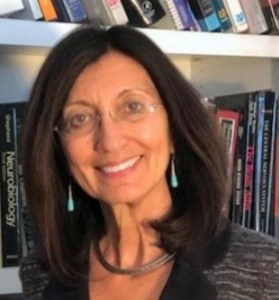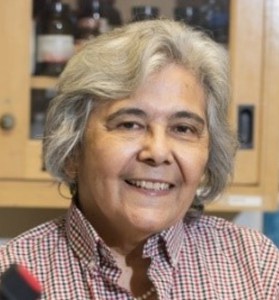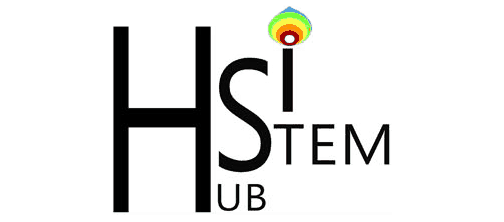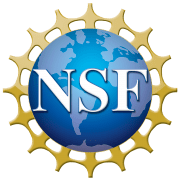THE 2020 NSF IUSE HSI SOLICITATION (20-599)
BY ELBA SERRANO & MARIAELENA ZAVALA
The October 2020 issue of the Hub newsletter is dedicated to highlighting national resources and partnering strategies that will assist investigators preparing proposals for the NSF HSI Initiative. The 2020 NSF IUSE-HSI solicitation (20-599) is active and the prior call has been retired.
The new solicitation affords exciting and more flexible options for the HSI community to develop proposals that enhance research and education opportunities for STEM students. The three proposal tracks are defined by the amount of the budget and project duration. As Lead PIs for the Hub we are keenly aware of the range of preparedness of HSIs for proposal submission and we were very pleased to note that planning grants are an option for institutions that are in the process of building research capacity and infrastructure for grant submission and management.
Also new in the 2020 call is the option to support faculty and student research projects at the home or other institution of higher education, an NSF-funded research center, and/or a national laboratory. Funds can be budgeted for undergraduate student research, supplies, research equipment, and faculty research development activities.
Partnerships and networking remain a critical component of the IUSE-HSI Initiative. NSF encourages proposals that forge collaborations with HSIs (especially HSI community colleges), other institutions of higher education, and with the NSF INCLUDES National Network. Proposal writers also should be attentive to NSF’s interest in educating students in high demand workforce areas, such as data science, artificial intelligence, next generation wireless, advanced manufacturing, quantum information science, and biotechnology.
Finding collaborators can be a challenge for all of us and proposing projects in areas that are underrepresented at many of our institutions, such as data science, can be a daunting task. For this reason, this newsletter features 5 NSF Hubs that can support your project’s goals and build your institution’s STEM expertise. We have established partnerships with these Hubs to develop joint activities and they are eager to support and include the HSI community in their network. NSF Hubs are tasked with serving the nation and if their mission aligns with your project’s goals do not hesitate to reach out for their support.
Proposal writers who seek to identify an INCLUDES partner, should contact and join the INCLUDES network that is overseen by the INCLUDES Coordination Hub. Faculty and staff also can partner with the Big Data Regional Innovation Hub that serves their census area to develop proposals that respond to the 20-599 prompt for training in data science. The relevance of this STEM field is heightened by the growing demand for data science experts and the COVID-19 pandemic restrictions on face-to-face classroom activities that have led to an emphasis on virtual educational and work environments. HSI faculty who seek to build expertise in data science can register for our data science workshops that will be offered during summer 2021 in partnership with the West Big Data Innovation Hub.
Proposals are due in January (Track 1 & 2) and February of 2021 (Track 3). Be sure to prepare by viewing the Hub’s webinar with NSF Program Officers Erika Camacho and Jennifer Lewis. The webinar will be available on the portal by early November 2020. If you seek collaborators, the Hub’s member network is a powerful resource for identifying potential grant partners. Finally, HACU2020 attendees are invited to attend our NSF Grantsmanship Workshop on Monday October 26 and drop by our HACU booth!
As lead PIs we are committed to the Hub’s mission to support the efforts of the HSI community to further the success of our students in STEM fields. This is your Hub. Please do not hesitate to reach out to us with suggestions, comments, questions, concerns, and/or a newsletter contribution!
 NSF HSI National STEM Resource Hub (NMSU), Lead PI
NSF HSI National STEM Resource Hub (NMSU), Lead PI
Dr. Elba Serrano is a neuroscientist and biophysicist who holds a position as a Regent’s Professor of Biology at New Mexico State University. Her research focuses on the development of the mechanosensory systems for hearing and balance and the role of neuroglia in maintenance of brain function. She has over 30 years of experience as a mentor and lead PI for NSF, NIH, and NASA grants, including directorship of student research education training programs such as NIH RISE and NIH BP-ENDURE. Serrano is a fellow of the American Association for the Advancement of Science and a recipient of a Presidential Award for Excellence in Science, Mathematics, and Engineering Mentoring that is conferred by the White House Office of Science and Technology Policy. She has served on the Advisory Committee to the NIH Director and is a member of the NIH BRAIN Multi-Council Working Group and the NIH ACD Next Generation Research Initiative Working Group.
 NSF HSI National STEM Resource Hub (CSUN), Lead PI
NSF HSI National STEM Resource Hub (CSUN), Lead PI
Dr. Maria Elena Zavala is a plant biologist who holds a position as a Professor of Biology at California State University, Northridge. She studies plant growth and development. Her research aims to understand how normal root growth is regulated and how plant cells become specialized and maintain their specialization. Zavala has over 30 years of experience as mentor and lead PI for NSF and NIH grants, including directorship of student research education training programs such as NIH MARC and RISE. She is a fellow of the American Association for the Advancement of Science, American Society for Plant Biology, and the American Society for Cell Biology. Zavala is a recipient of a Presidential Award for Excellence in Science, Mathematics, and Engineering Mentoring that is conferred by the White House Office of Science and Technology Policy. She has served on the ASPB Executive Committee and as president of the Society for the Advancement of Chicanos/Hispanics and Native Americans in Science (SACNAS).

